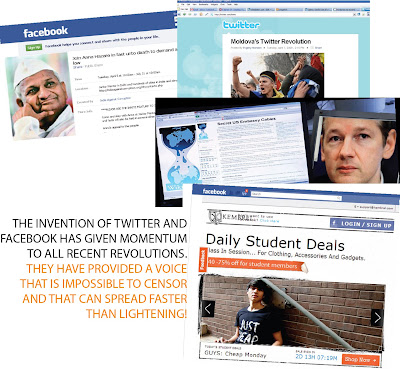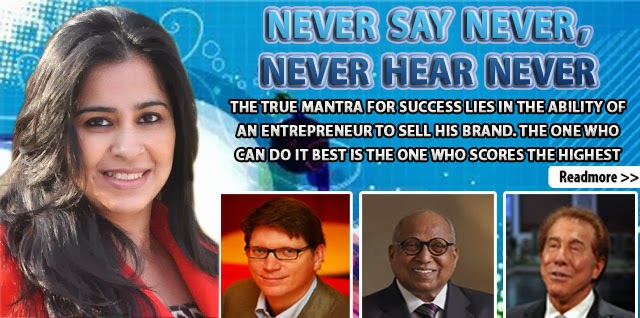HEAL THE WORLD, MAKE IT A BETTER PLACE!
Early this month, Nike did something a lot of movie fans and shoe collectors were waiting for. It created the exact replica of the shoes worn by Michael J. Fox in the popular 1989 flick ‘Back to the Future’. He wore the shoes when he travelled to 2015 in the movie. 1500 shoes were put on e-bay for auction – they were sold out faster than one could imagine; the campaign has been evidently massively successful. This sneaker is getting Nike extra attention not just because of the ‘limited edition’ of the shoes but also because all the proceeds will be donated to the Michael J. Fox Foundation for Parkinson’s disease research. To top it all, Sergey Brin has pledged to match the donations made to the foundation up to the next year (to a maximum of $50 million). The shoes have been auctioned for anywhere between $3,500 to $10,000 with the British rapper Tinie Tempah even paying $37,500 for his pair! The purchase of the year did help Tinie jump into the spotlight, but this has kept Nike in the news too and for some good reasons.
Brands need to be in the news for the right things. When a brand associates itself with the right cause, it gets noticed and spoken about, and that’s where it has a chance to overtake its competitors. Hugo Boss released a campaign this month for its perfume Boss Orange. However it was not the regular ‘glamour shoot’ that most perfume advertisements are about; instead, it talked of development of schools in Madagascar. Boss Orange has donated $300,000 to the ‘Schools of Africa’ initiative and through this campaign, it hopes to help at least 60,000 pre-school children in Africa. It used celebrities Sienna Miller and Orlando Bloom to propagate the idea that ‘every child has the right to an education’ – and Boss, along with UNICEF, would help do this “Today. To Help. Together”. When Bloom was chosen as the perfume’s brand ambassador in 2010, he said he identified with Boss Orange immediately because “it had a laid back spontaneous quality,” much like he had. So while Boss and Orlando were working on giving the brand a distinct identity, associating it with a cause made it stand out.
When a brand associates itself with a cause, it changes the total image and reputation of the company. Research has proved that firms that are socially responsible are considered by consumers to have a good reputation. In a study done by British Telecom in 2002, as much as 25% of a company’s reputation was dependant on its commitment to society.
She was called the ‘Mother Teresa’ of the business world, because she believed in not just doing business, but doing it with some heart too. Anita Roddick never forgot the African women who shared their skin care secrets with her, which she used to make her creams and lotions for her cosmetics brand ‘Body Shop’. The key to Body Shop’s success was not just its interesting products but the numerous social causes the brand stood for. It played an active role in Save the Whales campaign in 1985; again in 1989, it stood behind the cause of saving the Brazilian forests; and again in 1990, it energetically supported the petition against testing of animals. These were some of the numerous causes that Anita Roddick and Body Shop fought for and her customers (the young women) just loved her for it. This dynamic woman breathed her last four years ago in September 2007, but she showed the world how business does not just mean a crazy obsession with profits, but also a crazy obsession with the society. Body Shop gave crazily and the more it gave, the bigger it grew – and Anita Roddick soon became the fourth richest woman in Britain in 1990. CSR is a powerful tool and cannot be ignored. With the youth of today having a greater and louder voice in purchase decisions, companies that look after the society find increased customer loyalty as they increase their commitment towards the society. Customer loyalty is the one factor all brands would give their right arm for, and socially responsible organizations get it, since the customers respect them, and the word-of-mouth around these companies is so good that customers perceive their products to be more reliable and of better quality. As a result, they are ready to pay a higher price for these products and feel good about it.
When Bono, the legendary singer of the rock band U2, launched his brand ‘Product Red’, he got himself some real heavyweight partners. From American Express, Gap, Nike, to Armani, everyone announced their range of RED products, the sales of which would go to Bono’s Product Red to help fight AIDS in Africa. These brands and their products instantly got a lot of buzz and shot to fame and Bono raised $140 million.
Marks and Spencer has found a cause that is close to our hearts... useless hangers! According to a survey, some 100 million hangers are thrown away and they take as much as 100 years to degrade. So in July this year, Marks & Spencer tied up with UNICEF to launch a new campaign, which urged customers not to take the hangers home when they bought clothes from the store – and for every such purchase, the company would donate 50p to UNICEF to help it transform the lives of some of the poorest children in the world. All people had to do was make a simple choice and it made them feel good about it. Isn’t branding all about making the customer feel good? When you undertake socially responsible work, you not just make the customer feel good but you also do good to the world.
From Oprah to Lady Gaga, everyone knows what a strong impact these activities have on their fans. When Japan was hit by the earthquake this year, Lady Gaga was the first to quickly offer the ‘We pray for Japan’ wristband and encouraged her fans the ‘little monsters’ to buy the band to help the country. In just two days the bracelets made gross sales above $250,000. It was Nike that started this craze for bracelets in 2004 when it teamed up with Lance Armstrong and came up with this idea to raise funds for cancer. No one in their wildest of imaginations thought this would become a fashion item as youngsters proudly wore their cause on their wrists! Till date, more than 70 million of these bracelets have been sold and millions of dollars raised.
Last year, Oprah took up the cause of distracted driving, an issue that has led to many accidents. Oprah asked her fans to fill up a “No phone pledge” form, where they would pledge to not text or call while driving.
What’s business without a little giving! And one such self-made businessman is Renzo Rosso, the founder of Diesel clothing company. His foundation ‘Only the Brave’ pledges to change villages in Africa and remove extreme poverty. He believes brands can be used to do a lot more than just being fashion labels. Business is not just about earning but also about giving.
SOCIALLY RESPONSIBLE ADVERTISING
Business is marketing and marketing is a lot about advertising. Not just our business vision, but our advertising also should be responsible. After all, it pays to be responsible. Last month, Nivea For Men launched an advertisement for its cream, which showed a short haired, black model tossing the head of a black man with an Afro-American hair and beard. That head represented his ‘before- Nivea self’. The ad ended with the caption, “Look Like You Give A Damn…. Re-Civilize Yourself”. The ad did not go down well with the viewers as it alluded that Afro-Americans were not civilized, and people decided to not buy Nivea if it believed in such racist stuff. Nivea realized its irresponsible behaviour and quickly posted an apology on its Facebook page and withdrew the advertisement.
Advertising is a potent tool and needs to be used very carefully. Cadbury too tread on the danger line when the ad for its ‘Bliss’ range of dark chocolates ran into slight trouble this year. The chocolate bars were promoted with a strapline, “Move over Naomi, there is a new diva in town”. The black model Naomi Campbell did not take it too well and said she found it insulting, hurtful and racist. The ads were pulled out and Cadbury had to apologize to Naomi.
A little bit of sensitivity goes a long way in building a strong brand reputation. With competition increasing and with the consumer confused about product quality, these are the cues on the basis of which a consumer builds a perception about your product. Marketers should be careful about their image.
SOCIALLY RESPONSIBLE EMPLOYEES
It’s been proved that employees who work in ethically and socially responsible organizations are more committed to it. The young are choosing organizations that show a commitment towards society and are ethical. Finally, employees are your first customers, and it makes business sense to keep them happy. They have the strongest influence on ‘word of mouth’ about your brand and your business.
Be good, be responsible. That is what will help you sustain in this highly competitive world. Let’s make a commitment to not just make profits but in our own way heal the world, make it a better place.


Comments
Post a Comment